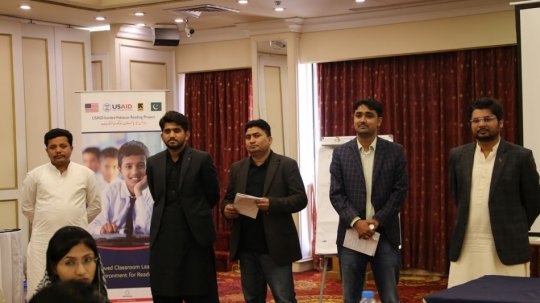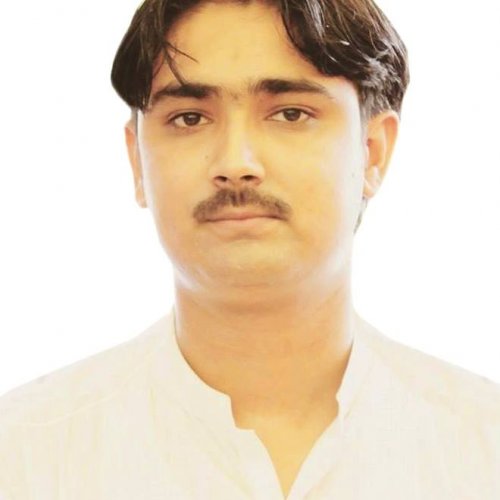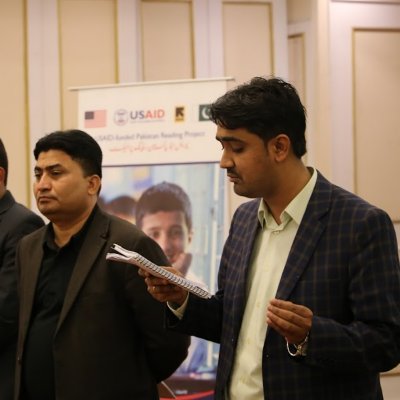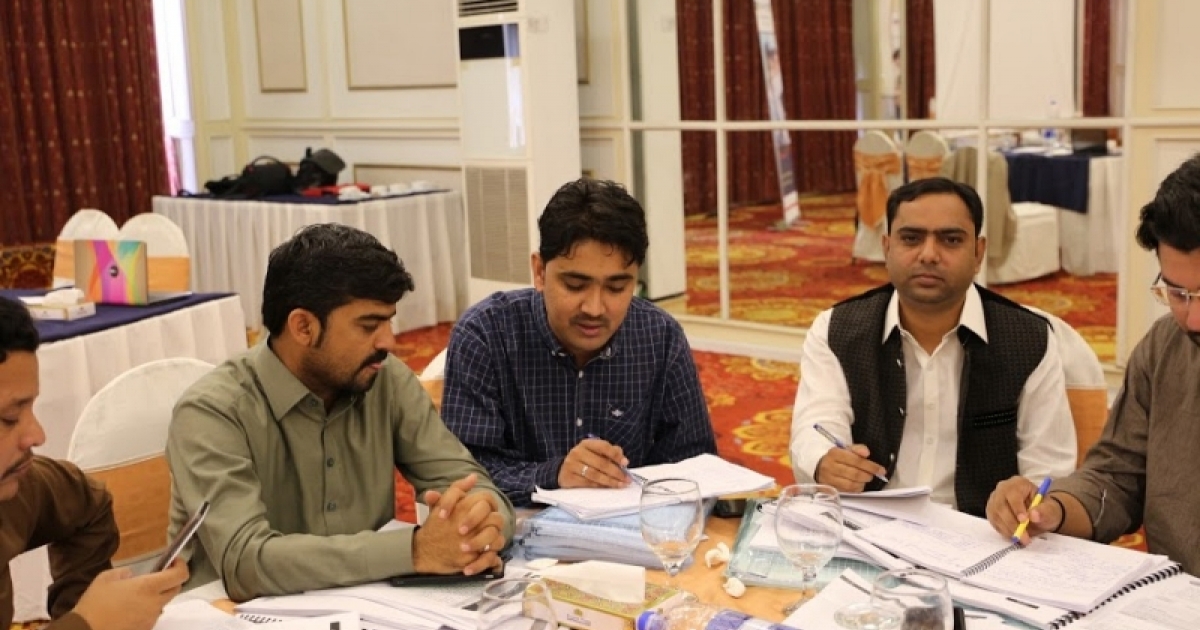“In a Better World Everyone Must Be Included and Treated Fairly”
Imran Ahmed has seven years of experience in non-profit sector in the fields of project management, social mobilization, education, peace building, food security and livelihood, youth and women economic empowerment. He has earned a Master's degree in Social Science from the University of Sindh and a diploma in Information Technology from SBTE Karachi. He has worked closely with youth groups, civil society, academia, law enforcers, and government agencies to enhance their capacities and mass awareness to prosper peace, strengthening rule of law, governance, democracy, and countering terrorism and extremism in the Sindh. He has also voluntarily implemented projects on education, youth and entrepreneur mentoring, social entrepreneurship, and cultural exchange programs.
Q: Tell us a few things about your country, and also your life's story!
A: Pakistan’s culture is enriched in traditions and represents the history of this region. Pakistani people and society are unique in its way of life, thoughts and morals. The inhabitants of each province have diverse cultural values which make them different from other groups of the society.
Pakistan has a rich and unique culture that upholds traditions and conventions. Is rich in a variety of dresses; these dresses are very colourful and prominent and give attractive look during national fairs and festivals which held in all parts of the country - Polo festival of Gilgit is prominent at national and international level.
People are great lovers of sports and games. Modern games like hockey, cricket, football, badminton, squash, table tennis and lawn tennis are played throughout the country. Pakistan has produced great sportsmen in the past.
Pakistan enjoys great distinction in handicrafts at an international level. Wooden furniture of Chiniot, sports goods of Sialkot and embroidery of Multan and Hyderabad is world famous. We also have a burgeoning tourism industry, due to the smorgasbord of cultures, peoples and landscapes Pakistan has to offer. Ancient civilization ruins of Mohenjodaro, Harappa and Taxila, to the hill stations of Murree, and the hiking tracks of Shogran and Siri Paaye, all have something to offer to each type of traveller. The northern parts of Pakistan have many old fortresses and towers. The Gilgit, Hunza and Chitral valleys are exceptionally beautiful sights to behold, along with the people here with typical costumes, folk dances, music and sports like polo and buzkashi.
Pakistani music is represented by a wide variety of forms. It ranges from traditional styles such as Qawwali and Ghazal to more modern forms that blend traditional Pakistani music with Western music.
Q: What is your view of the world as it is today? And how do you define the concept of a better world?
A: In a Better World, everyone must be included and have access to all the resources needed to live and contribute to a healthy world. For example, in the workplace, a healthy and Better World would mean all people are treated fairly and judged by the “content of their character.”
Q: As a young individual what are a few of the hurdles that you had to overcome up until today?
A: As I am a youth, I have the motivation to represent my community and do something for my country. I have done many things in a very young age like promoting education in rural areas, promoting girls' rights and gender equality, working for smart agriculture and land tenancy agreements, and promoting sustainable development goals at a community level, aware them regarding life skills based education and aware youth on career counselling.
Q: Why is the role of a mentor important for you?
A: I need a mentor who will guide me on life skills and career counselling for sustainable development in my society.
Q: Do you have a lesson that life has taught you and you would like to share?
A: Yes. I have many lessons; one that I learned from my father - he said to me - do things for your community do things for your country because you are one who is different from others, so do things for future - and I am working for it.

Q: Name a project, a foundation or a person in your country that you think is doing great work in helping improve other people's lives!
A: Food and Agriculture Organization of the United Nations working for ZERO hunger.
Q: What are some of the challenges that women in your country face and what efforts are made towards gender equality?
A: Gender Equality and Women Empowerment
Q: Athena40 is the first ever global selection of the top 40 women forward thinkers, commentators, activists, authors, academics, entrepreneurs, executives, innovators. Can you think of a truly innovative and forward-thinking woman from your country that you wish to nominate for the Athena40 global list?
A: I will nominate Ms. Almas Shah Kazmi Kiran. She belongs to a very backward area and is working for women empowerment and gender equality. At a very young age she proved herself.
Q: Share with us a phrase, a poem or a story that you love or you find interesting!
A: There was the method of kneeling, a fine method, if you lived in a country where stones were smooth. The women dreamed wistfully of bleached courtyards, hidden corners where knee fit rock. Their prayers were weathered rib bones, small calcium words uttered in sequence, as if this...
Q: Tell us one thing that you have learned from your mentor.
A: I always respect my mentor! He is a great man. I learned from him that no one behind you is champion - do for the next generation, do for the future and keep it up like a champion.




